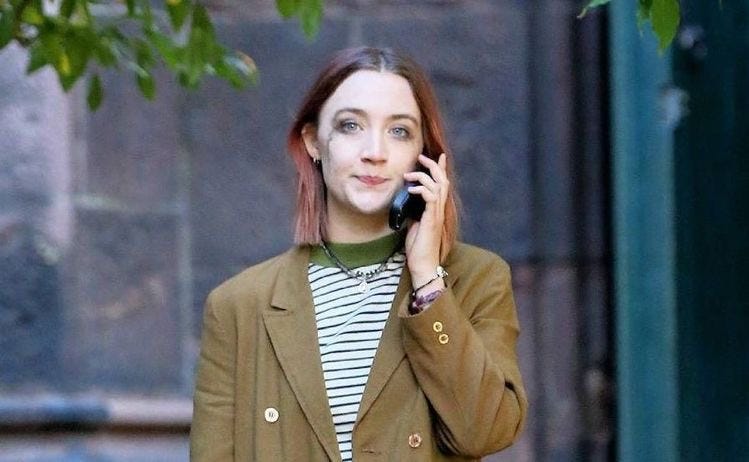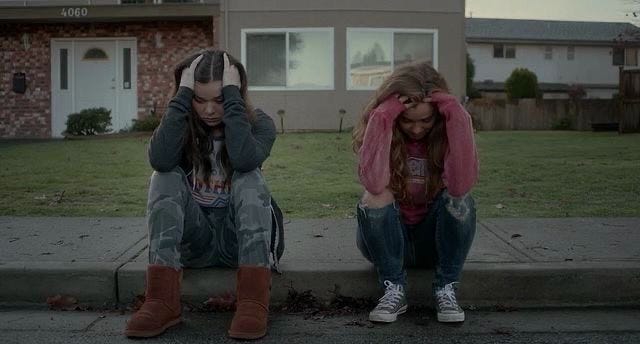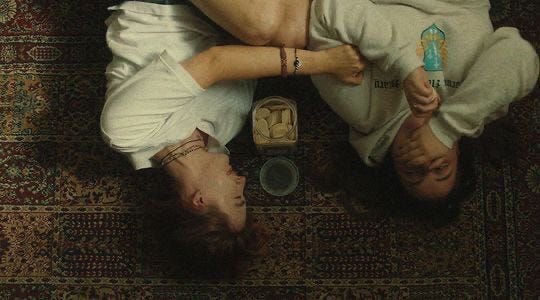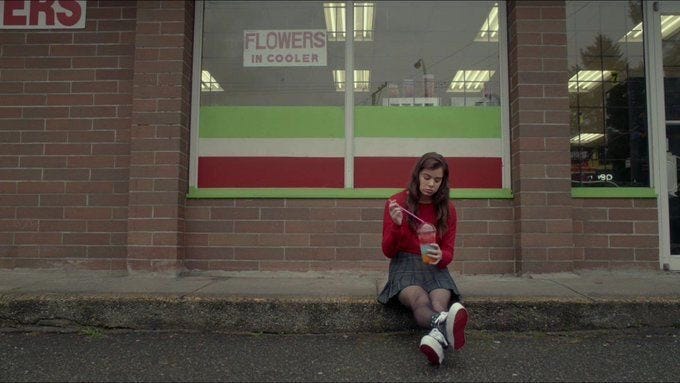My College Coming of Age
What the hell even is a “coming of age”? And why did I get one so late?
In my freshman year of college, I watched other people live their lives because I didn’t yet know how to live my own. I was seventeen, in a terrible relationship, freshly out of high school, and quickly made friends who didn’t quite want the best for me. Needless to say, a seventeen year old has nothing in common with twenty-three-year-olds, particularly twenty-three-year-old men who get a real kick at the fact that you’re “just a baby”.
In my first college semester alone, I had to talk a friend down over the phone from committing suicide; I walked in on a different friend about to commit suicide and rushed her to the emergency room in the middle of the night; I got cheated on for not the first time in my life but definitely the worst; and I cried so loudly in my room that my suitemates (both of whom I’d never spoken a single word to) knocked on my door and asked if I was okay.
I’m not saying this to scare you. I promise I’m not. Nor am I saying this for pity. But I need you to understand where I was to then understand how important it was for me to change.
The term “coming of age” that defines many beloved books and movies—The Perks of Being a Wallflower, The Edge of Seventeen, The Breakfast Club, Dead Poets Society, just to name a handful of my favorites—originated from the German word “bildungsroman”. This isn’t too important for you to know except that it immediately became one of my favorite ever words upon first learning it in my Analyzing Literature class. (My other favorite words include but are not limited to: catharsis, adore, enamored, saudade.)
I’ve always been fascinated with the idea of bildungsroman, even before I learned the word. Maybe it was because I wanted that so badly for myself, and I was a late bloomer in that sense. Nearly every coming of age film is set in high school, with 15-17 year olds who somehow manage to find themselves at that young age. My coming of age came to me in college, despite what my favorite medias say on the topic. I always thought it would come to me sooner, and that it would be this dramatic, climactic thing that I’d been waiting for, yearning for, forever. In a way, it was. But it wasn’t the way I pictured it, not the way the movies portrayed.
I visited my friend’s hometown recently. While driving through it, she pointed out historical landmarks of her teenhood: “That’s where I got my first kiss. That’s where I first went skinny dipping. I cried on that bench. I got broken up with here.” I didn’t have much of a teenhood. I realized this years ago while I was still in it, watching movies and shows about suburban teens who know their hometown like the back of their hand. I don’t have a hometown. When people ask where I’m from, it’s always a complicated answer. Growing up in so many different places means I never had the time, nor even bothered, to make a mental map of any town or city I’ve lived in. And going to a conservative boarding school in the middle of nowhere during my formative teen years (which is a trauma to unpack another day) didn’t give me much room to grow as an individual and attain that coming of age I so desperately desired.
Coming of age, to me, is gaining true autonomy for the first time. The catharsis that leads to unadulterated freedom. College gave me that autonomy. Or, it’s more so that I had to steal it from them (perks of going to a conservative university—another trauma to unpack another time). Regardless, it became mine—in the middle of a worldwide pandemic. The worst possible time.
We can’t choose when we have our bildungsroman. It comes when it needs to. And although I needed it, I hated the pace at which it came.
In the second semester of my freshman year, I finally had a friend group I enjoyed hanging out with. I felt like I was living the teenage fantasy of my wildest dreams. We went downtown at midnight, dyed each other’s hair in parking lots, played truth or dare in the middle of the street, spent nearly every evening and weekend together. But my mental health was at an all-time low—still fresh out of a break up and reeling from my friend’s suicide attempt that I’d accidentally witnessed, plus prozac made me so nauseous and shaky that I could never keep my meals down. Me being self-destructive at the time, I romanticized the hell out of this situation. I imagined I was in a Skins remake, a British alter ego with constantly stained eyeliner and wide eyes to accompany it.
In a way, the pandemic saved me from this fate. Being condemned to my room and forced to sit alone with my thoughts for most of 2020 made me spiral into madness at first—my sister has a video of me rolling around the floor out of boredom—but I eventually gave in to the calling of self-reflection. I was cocooned for the summer, and by the time I went back to university, I was an entirely new person.
Looking back on her now, I call her “hippie paula”. Bleached hair, thrifted outfits that were always in earth tones, some type of crystal hanging around my neck at all times. I was bursting with energy, motivated to do everything and wanting to embrace the world with my newfound personality. I loved myself like I never had before.
And this is what I mean when I say that my bildungsroman lasted much longer than the books and movies typically portray. Because normally the story would end here: depressed girl isn’t depressed anymore! She found herself! Hallelujah! But that wasn’t the case for me.
By the time second semester rolled around, I felt disconnected from myself again. I got off my meds and my anxiety was at an all time high. I avoided seeing my friends, avoided seeing anyone at all except for my best friend at the time and some occasional group hangouts that I would instantly regret upon feeling overwhelmed. I spoke on my sudden personality shift in another post, and on my long and cursed road from loving myself to hating myself, which came as suddenly as the flick of a light switch. I didn’t understand what had happened to me. What happened to the butterfly that has bloomed months ago? Why had I regressed back to my cocoon form? I found myself, didn’t I? Wasn’t the journey supposed to be done?
I was recently texting a friend on how everchanging humans are. She talked to me about she sees herself as a fixer-upper, but not in a bad way; in the sense that she can always be more kind, more loving. And I asked, curious, “Do humans have a final form at all? Or is it just constant change forever? And if it really is just change forever, is that a good or a bad thing? Do we ever get tired of changing so much?”
My college coming of age was restless. On and off and on and off again. My love-hate relationship with myself drained me. I don’t know if there is a true form of rest for human beings. So long as we don’t have a final form, so long as we never stop growing, we never really rest. We get just enough energy just to drain ourselves again.
This is all to say that I don’t think a true bildungsroman is like the movies at all. I think we have multiple coming of age stories that span throughout our lifetime. We may lose our autonomy—to another, to our mind, to ourselves—only to regain it later. We mature into ourselves only to suddenly be immature for our age a few years later. It’s a constant cycle, a washing machine that never slows down, that both drowns and cleanses us in its rinse.
I didn’t have my teenhood coming of age. I didn’t have the space or opportunity to grow into myself, discover myself, the way I deserved. But I have it now. I may lose it again—the limitations vary. It could be my environment, my mental state, my current friends. Anything can hold you back from your bildungsroman. But anything can push you toward it too.
I’m about to graduate college now. I’m most likely going to move to a different state on my own. I’m expecting a bildungsroman there too, maybe not instantly, but eventually. My post-grad coming of age will take just as long, if not longer, than my college coming of age. And whenever it comes, I know I won’t be ready. That’s the trick about these things: we’re not supposed to be ready.
A paid newsletter is finally happening! I know, after months of promises. But what better time to launch it then National Poetry Month?
My paid newsletter will consist of: various poems, conversations, rants, and (the best part) sneak peeks to some longer writings I’m working on! (Including a screenplay and a novel!) I’m also working on starting a book club through this subscription where we’ll read the same book together and talk about it, and you’ll get to hear my many thoughts. To upgrade your subscription, head to your settings on Substack!
I know that this newsletter is very late. Who knew that college would be this hectic? (Literally everyone.) I hope that this very special paid newsletter will make up for it. The first edition will be out in (hopefully) one week! Besides this, the free version of this newsletter, meaning these once a month posts, will still be available to the public.
I feel happy today. I hope you do too.
Write a poem today!
xoxo,
paula <3









This makes me want to play 'Love Club' or 'A world alone' by Lorde❤️